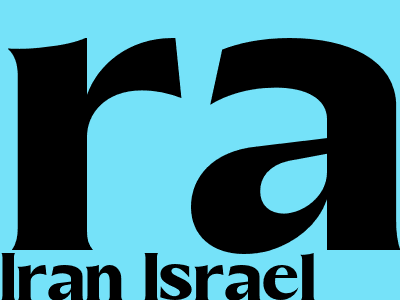
Israel-Iran Conflict: History, Escalations, and Global Impacts
A Long-Standing Rivalry with Deep Historical Roots
The conflict between Israel and Iran has a complex historical background, with tensions dating back to the 19th century. The creation of Israel in 1948 and the subsequent Arab-Israeli War further escalated the rivalry.
Iran's stance against Israel stems from its support for the Palestinian cause and its opposition to Israel's occupation of Palestinian territories. Conversely, Israel views Iran as a threat to its existence, citing Iran's nuclear program and its support for militant groups like Hezbollah.
Escalating Tensions and Proxy Wars
Tensions between Israel and Iran have been exacerbated by a series of events, including: Iran's nuclear program, Israel's assassination of Iranian nuclear scientists, and Iran's support for Hezbollah in Lebanon and Syria.
The conflict has also escalated through proxy wars, with Israel targeting Iranian-backed groups in Syria and Lebanon, and Iran retaliating with missile attacks on Israeli targets.
The Nuclear Dimension
Iran's nuclear program has been a major source of tension. Israel considers Iran's nuclear capabilities to be a direct threat to its security, while Iran maintains that its program is for peaceful purposes.
International negotiations over Iran's nuclear program led to the Joint Comprehensive Plan of Action (JCPOA) in 2015, under which Iran agreed to limit its nuclear activities in exchange for the lifting of sanctions.
Regional Dimensions and Global Implications
The Israel-Iran conflict has significant regional implications, affecting the stability of the Middle East. Iran's influence in Lebanon, Syria, and Iraq has led to concerns over a "Shiite crescent" encircling Israel.
The conflict also has global implications, with the United States, Russia, and other world powers playing a role in mediating and shaping the dynamics between Israel and Iran.
Prospects for Resolution
There are no easy solutions to the Israel-Iran conflict. The deep historical mistrust, ideological differences, and regional ambitions make it challenging to find common ground.
Efforts to de-escalate tensions and find a peaceful resolution have been complicated by the assassination of Iranian General Qasem Soleimani by the United States in 2020.
However, the ongoing negotiations between Iran and world powers over its nuclear program may provide a potential avenue for dialogue and a reduction of tensions.
Conclusion
The Israel-Iran conflict is a complex and multifaceted issue with a long and troubled history. Tensions between the two countries have been exacerbated by the nuclear dimension, proxy wars, and regional dynamics.
Resolving the conflict will require sustained diplomatic efforts, trust-building measures, and a willingness from both sides to find a peaceful and just solution that addresses the legitimate concerns of all parties involved.